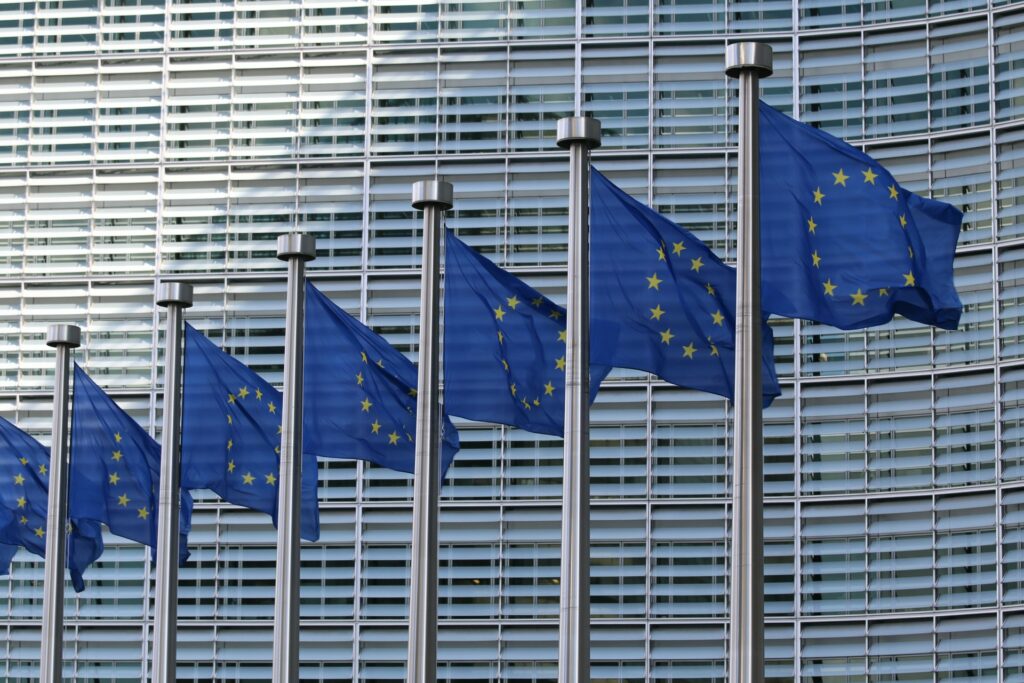
While cryptocurrencies are booming, the European Central Bank is working hard on the creation of a digital euro. Would an “e-euro” be similar to crypto such as bitcoin?
The prospect of seeing an e-euro appear in the years to come is becoming a reality. The European Central Bank (ECB) announced on July 14 the launch of a two-year pilot project to create a digital euro. ” It has been nine months since we published our report on the digital euro. Since then, we have deepened our analyzes, gathered the opinions of citizens and professionals, and carried out encouraging tests. This leads us to move up a gear and launch the project of a digital euro », Announced the President of the ECB, Christine Lagarde, in a press release.
This digital euro is presented as an alternative to cryptocurrencies. Does this mean that this e-euro will be a kind of European bitcoin? The two will actually be quite different from each other.

Cryptocurrencies are not official currencies
Cryptocurrencies such as bitcoin are not official currencies. The fact that they are not legal tender means in particular that people and companies are not obliged to accept them in payment of a debt. For now, only El Salvador has plans to make bitcoin an official currency in September.
The project could have some advantages, as the majority of Salvadorans do not have a bank account. This project is however strongly decried by the International Monetary Fund and the World Bank, which criticize the heavy environmental impact of the cryptocurrency, and believe that its adoption raises many ” macroeconomic, financial and legal issues “.
In general, cryptocurrencies have a decentralized organization (this is also one of the points that their supporters put forward): they are not controlled by central banks but are based on the blockchain, a large open register that each user can check.
” Cryptocurrencies are fundamentally different from central bank currencies: their prices are often volatile, which makes them difficult to use as means of payment or units of account. », Argues the European Central Bank on its site.
A digital euro would consume less energy
The European institution ensures that a digital euro would also consume less energy than bitcoin. This is an important point, because the consumption of bitcoin is one of its biggest flaws. It is linked to the architecture of its blockchain: it uses a solid verification mechanism, the “proof of work” but which is very energy intensive, because it requires miners to solve complex calculations to validate a block, and earn the associated reward. What’s more, when mining capacity increases (as new people start mining bitcoin or existing entities acquire additional machines), the difficulty of mining bitcoin is increased. Note, however, that not all cryptocurrencies are as energy intensive as bitcoin. For example, Ethereum must switch from “proof of work” to “proof of stake”, and the Ethereum Foundation estimates that this will reduce its consumption by more than 99%.
The European Central Bank assures in any case that, if it sees the light of day, its digital euro will be relatively ecological: ” with the architectures tested, the energy consumed to carry out tens of thousands of transactions was negligible compared to that of cryptocurrencies such as bitcoin “.
What would a digital euro look like?
The digital euro imagined by the European Central Bank would be no different from a classic euro. ” It would be identical to tickets but digital », Explains the ECB on its site. It would be an electronic form of money generated by the Eurosystem (editor’s note: the system formed by the European central bank and the national central banks). ” A digital euro would not replace cash, it would offer an additional option. The Eurosystem will continue to ensure access to cash across the euro area », Reassures the ECB.
Why launch a digital euro?
The ECB believes that a digital euro could accelerate the digital transformation of the European economy and boost innovation in the field of payment tools. ” A digital euro would be a fast, simple and secure tool for your daily payments », She specifies on her site.
The project certainly also aims to regain part of the ground ceded to cryptocurrencies which are more and more popular. Many States in the world have a rather ambivalent position vis-à-vis them: they want to take advantage of the cryptocurrency boom but are worried about the instability they can generate, the illicit uses that are sometimes made. (money laundering, etc.), and difficulty controlling them.
China, which was home to the majority of global bitcoin mining, has also completely turned around on the subject: it has decided to launch a digital yuan, and has made way for it by taking drastic measures to stop mining of cryptocurrencies on its soil.
Will a digital euro soon be launched?
The ECB is currently only in the testing phase of a digital euro, but the fact that it is launching a much longer second phase of experimentation shows that the digital euro is on the right track. The second test phase will start in October 2021 and will last two years. This experiment should make it possible to determine the form that a digital euro could take and how it would be exchanged between traders and citizens.
The EU also wants to ensure that a digital euro ” will help fight illicit activities and will not have a negative impact on financial stability and monetary policy “. The European Central Bank however specifies on its site that the implementation of a digital euro does not seem, for the time being, to present insurmountable technical challenges.



